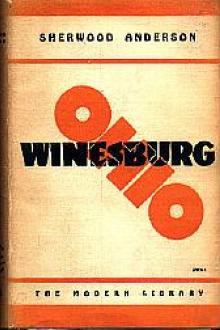


(There are some writers one should never return to.) But now, in the fullness of age, when asked to say a few introductory words about Anderson and his work, I have again fallen under the spell of Winesburg, Ohio, again responded to the half-spoken desires, the flickers of longing that spot its pages. I no longer read Anderson, per- haps fearing I might have to surrender an admira- tion of youth. By then, I had read writers more complex, perhaps more distinguished than Anderson, but his muted stories kept a firm place in my memories, and the book I wrote might be seen as a gesture of thanks for the light–a glow of darkness, you might say–that he had brought to me.ĭecades passed. In my book I tried, somewhat awk- wardly, to bring together the kinds of judgment Trilling had made with my still keen affection for the best of Anderson’s writings. There was a certain cogency in Trilling’s attack, at least with regard to Anderson’s inferior work, most of which he wrote after Wines- burg, Ohio. Trilling charged Anderson with in- dulging a vaporous sentimentalism, a kind of vague emotional meandering in stories that lacked social or spiritual solidity. It came shortly after Lionel Trilling’s influential essay attacking Anderson, an at- tack from which Anderson’s reputation would never quite recover. Once freed from the army, I started to write liter- ary criticism, and in 1951 I published a critical biog- raphy of Anderson. This indifference would not have surprised him it certainly should not surprise any- one who reads his book. Clyde looked, I suppose, not very different from most other American towns, and the few of its residents I tried to engage in talk about Anderson seemed quite uninterested. Several years later, as I was about to go overseas as a soldier, I spent my last weekend pass on a somewhat quixotic journey to Clyde, Ohio, the town upon which Winesburg was partly modeled. In those days only one other book seemed to offer so powerful a revelation, and that was Thomas Hardy’s Jude the Obscure. A New York City boy who never saw the crops grow or spent time in the small towns that lay sprinkled across America, I found myself overwhelmed by the scenes of wasted life, wasted love–was this the “real” America?–that Anderson sketched in Winesburg. Gripped by these stories and sketches of Sherwood Anderson’s small-town “grotesques,” I felt that he was opening for me new depths of experience, touching upon half-buried truths which nothing in my young life had prepared me for. I must have been no more than fifteen or sixteen years old when I first chanced upon Winesburg, Ohio. II, also concerning Jesse Bentley III Surrender, concerning Louise Bentley IV Terror, concerning David Hardy THE PHILOSOPHER, concerning Doctor Parcival


 0 kommentar(er)
0 kommentar(er)
